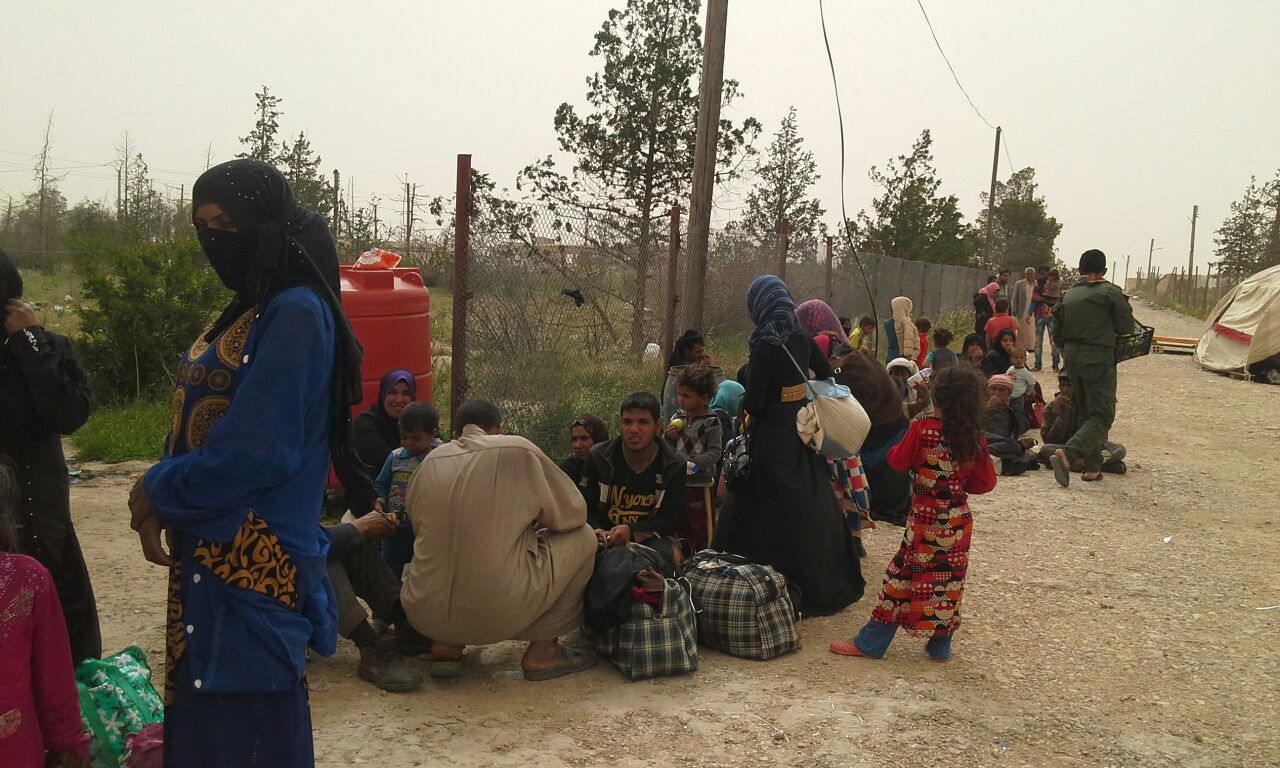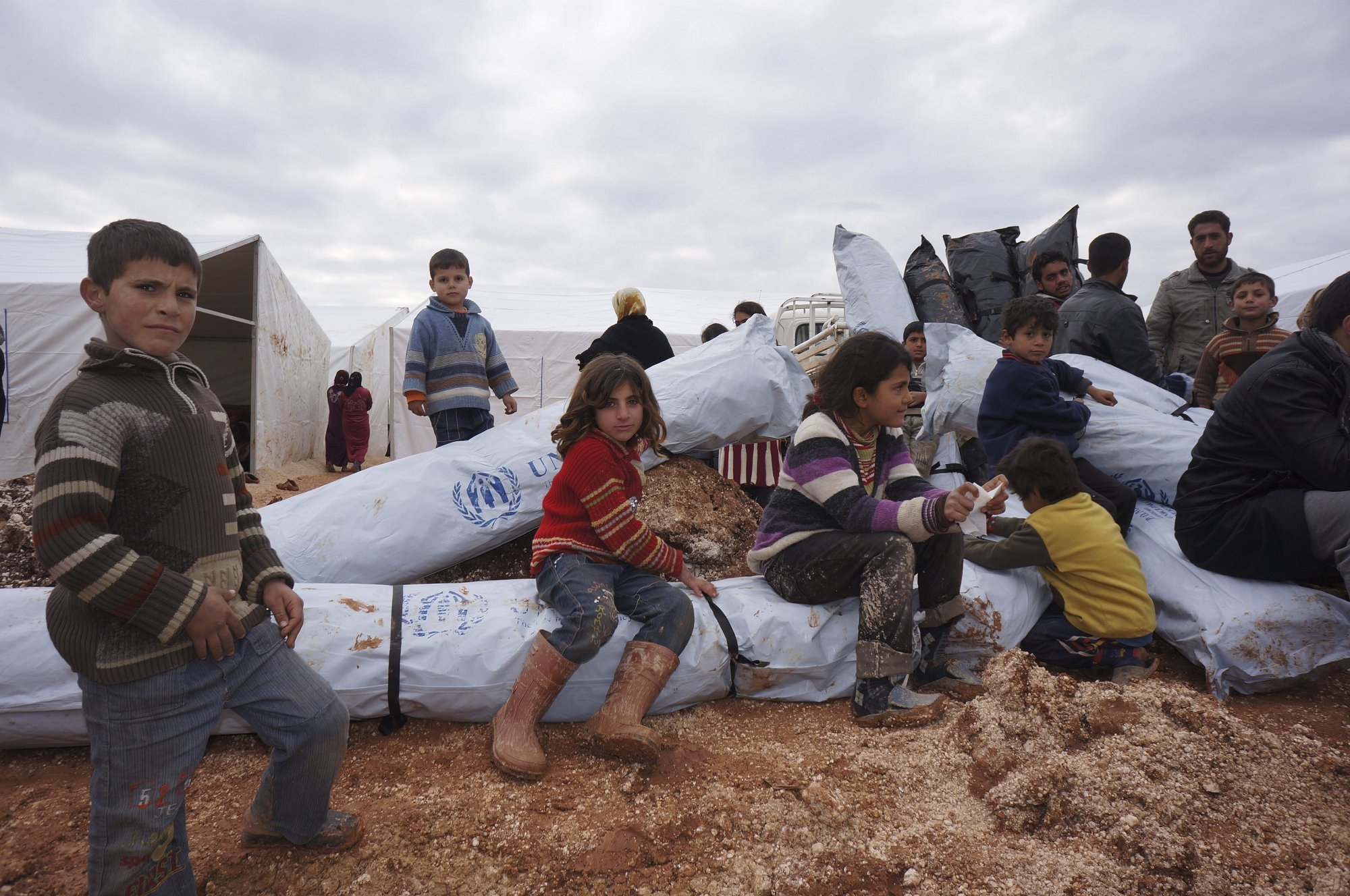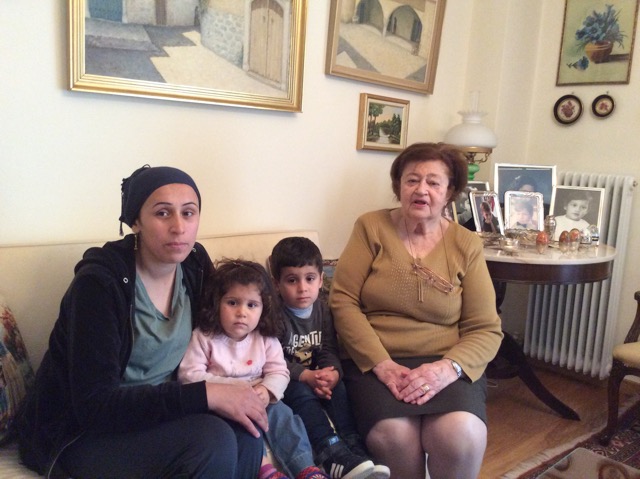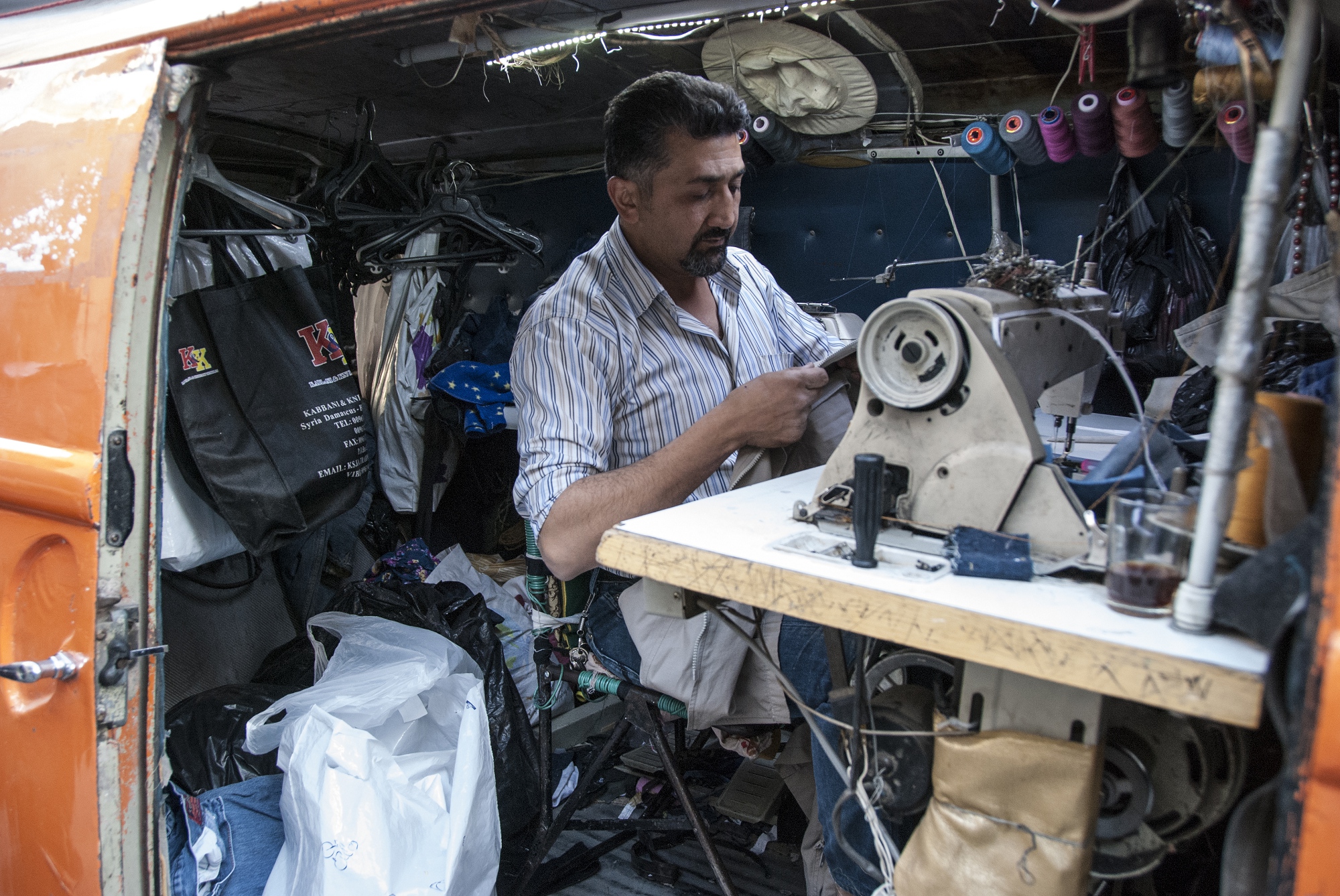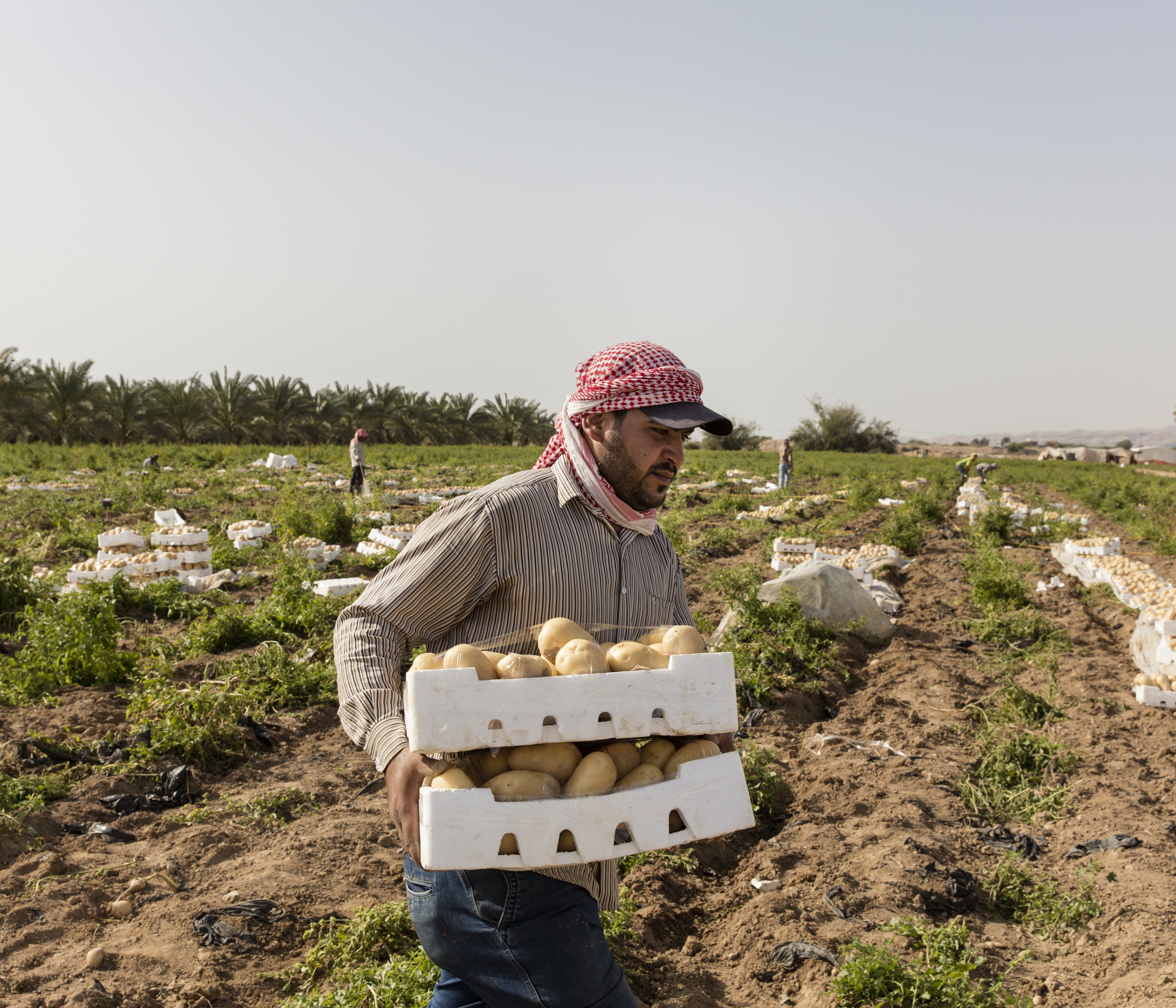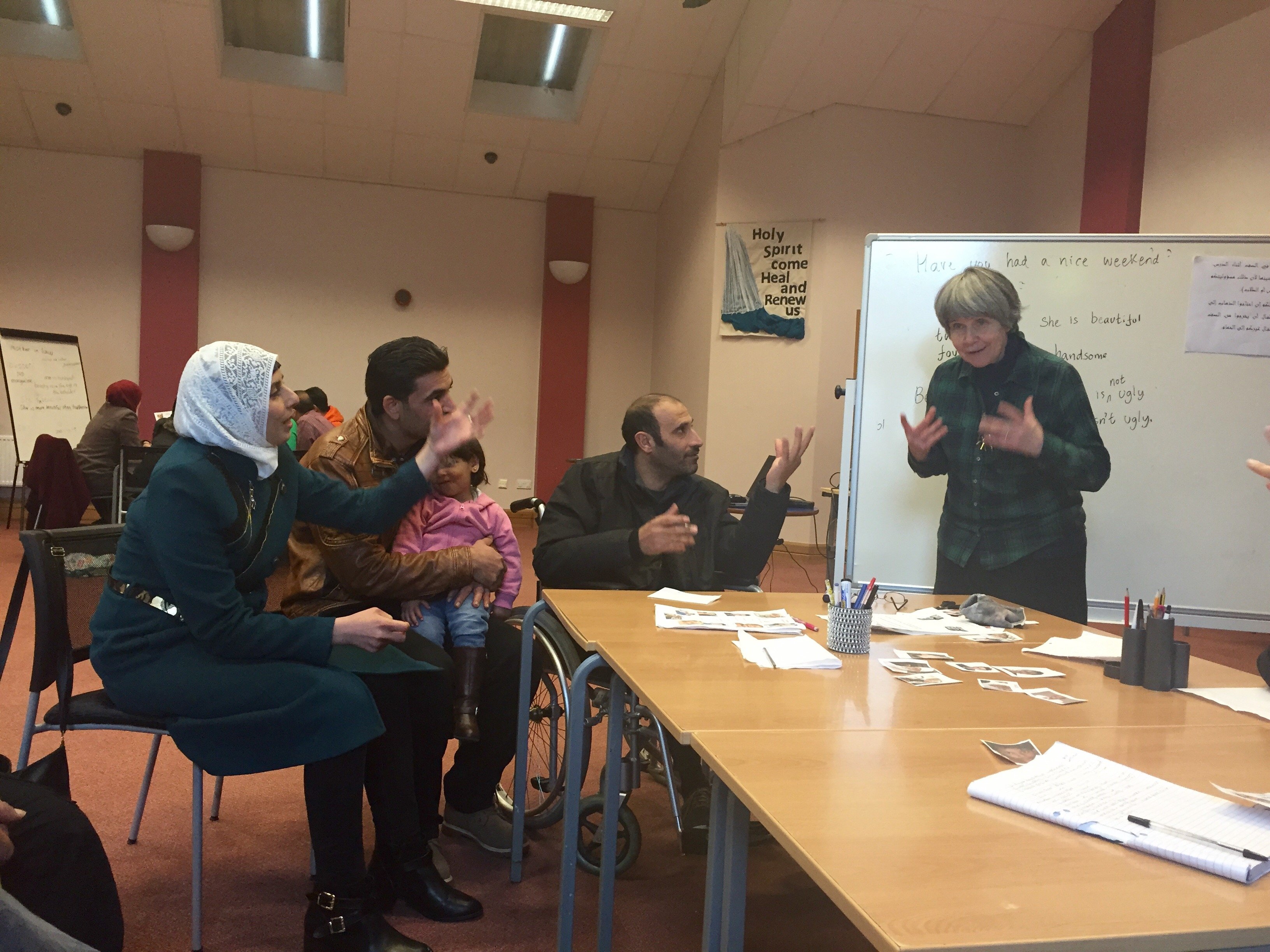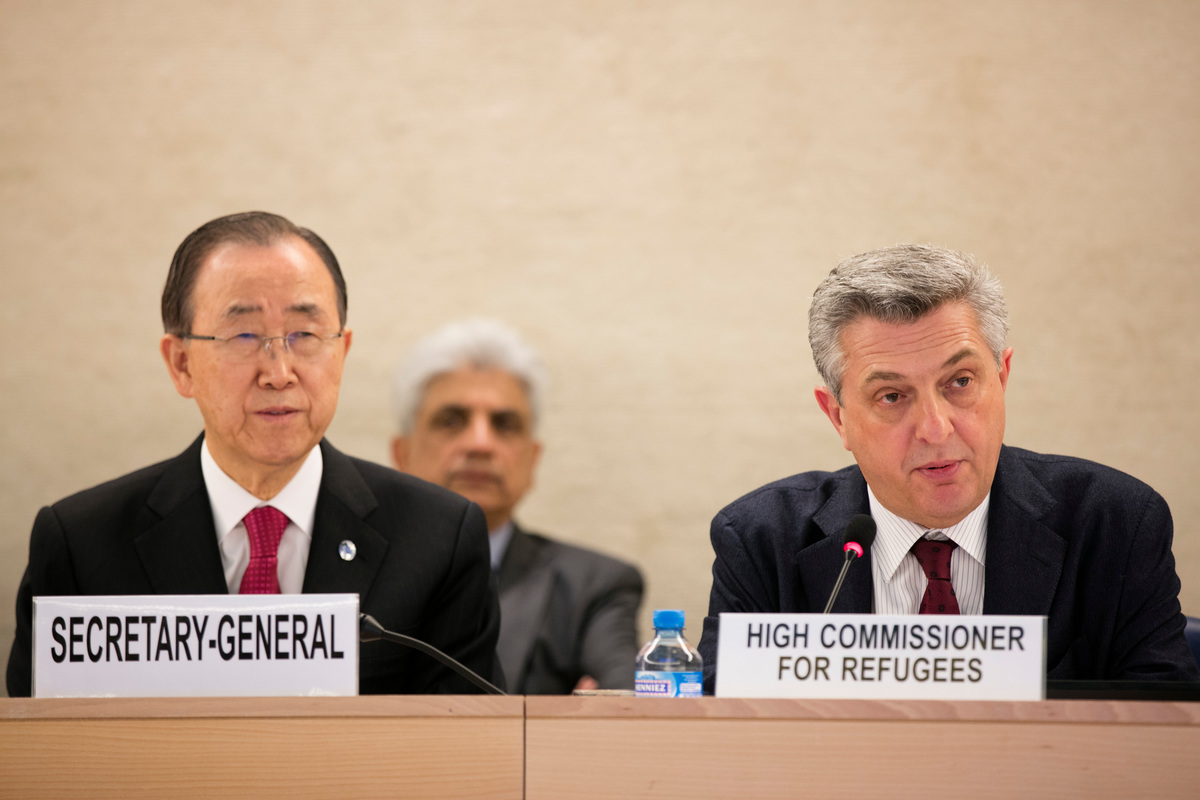Refugees from embattled Syrian town report harsh conditions, difficulties in reaching safety
Refugees from embattled Syrian town report harsh conditions, difficulties in reaching safety

GENEVA, June 4 (UNHCR) - The UN refugee agency on Tuesday said it has been seeing small numbers of refugees arriving in eastern Lebanon after escaping from the embattled Syrian town of Al Qusayr, where heavy fighting flared up three weeks ago.
The refugees, mostly women and children, have told UNHCR staff that the strategically located town in western Syria has been badly damaged and the living conditions are extremely difficult. They said the route to Lebanon was dangerous and it was unsafe to travel with men.
"From the handful of interviews we have done so far, it appears that a new route for displaced people has opened up from the Qusayr area towards Arsal in Lebanon, about 100 kilometres away," UNHCR spokesperson Melissa Fleming told journalists in Geneva. "Some of those forced out of Qusayr by the fighting are fleeing into Lebanon as refugees, while others are being displaced internally to towns, including Rankous, Dahel, Qara, Flita and Nabek," she added.
The refugees arriving in Lebanon said the difficult journey to the border has to be made by foot. "Fighters are said to be targeting people as they try to flee. No route out of Qusayr is considered safe, and there are continued reports of between 700 and 1,500 injured civilians being trapped in Qusayr," Fleming said, adding that UNHCR could not verify the reports.
"Those we have spoken to say it is unsafe to flee with men, who are at heightened risk of being arrested or killed at checkpoints along the way. None of the refugees was able or willing to identify those who are manning the checkpoints," the UNHCR spokesperson said.
She noted that one woman had told UNHCR staff that people in Qusayr were faced with a stark choice, "You leave and risking being killed . . . or you stay and face a certainty of being killed."
The refugees describe Qusayr as a ghost town, heavily damaged and rocked by warfare. People are hiding in bunkers or holes dug as shelters. One lady said her family could not leave their hole for a week and had to live off the food they could bring with them.
"One of the few men to have arrived in Lebanon said he had fled after his home was bombed and his 20-year-old son had been killed. He had no belongings with him. All those we spoke to reported great fear of approaching any checkpoint," Fleming said.
UNHCR does not have access to Qusayr and the refugee accounts are hard to verify. "However, we share the concern of others over the serious humanitarian situation and the risks for the civilian population. It is imperative that people seeking a route out of Qusayr, and other unsafe locations, be allowed access to safe areas," Fleming stressed.
UNHCR is also concerned about impediments in the way of people seeking to reach safety in other parts of the region. In Jordan, more than 4,300 people managed to cross from Syria between May 27 and June 2. This compares to 26,600 people in the first 18 days of the month. Refugees continue to report difficulties in accessing the border.
Crossings into Iraq also appear to be difficult. UNHCR has just learned that the crossing points in Peshkapor district, in the north, have been closed since May 19. As other crossing points are also closed - apparently due to local political reasons - Iraq is in effect closed to Syrian refugees. "We appeal to the Iraqi authorities to allow border crossings to resume, so that all people in need of help have access to safe haven," Fleming said.
UNHCR is also concerned with reports from refugees about increasing difficulties they face in crossing into Turkey at many border points. Within Syria, those seeking to approach the border report controlled access resulting in diminished access to the border. UNHCR has not been able to verify this information directly. UNHCR advocates all Syrians wishing to flee be allowed to do so and are given safe passage.

